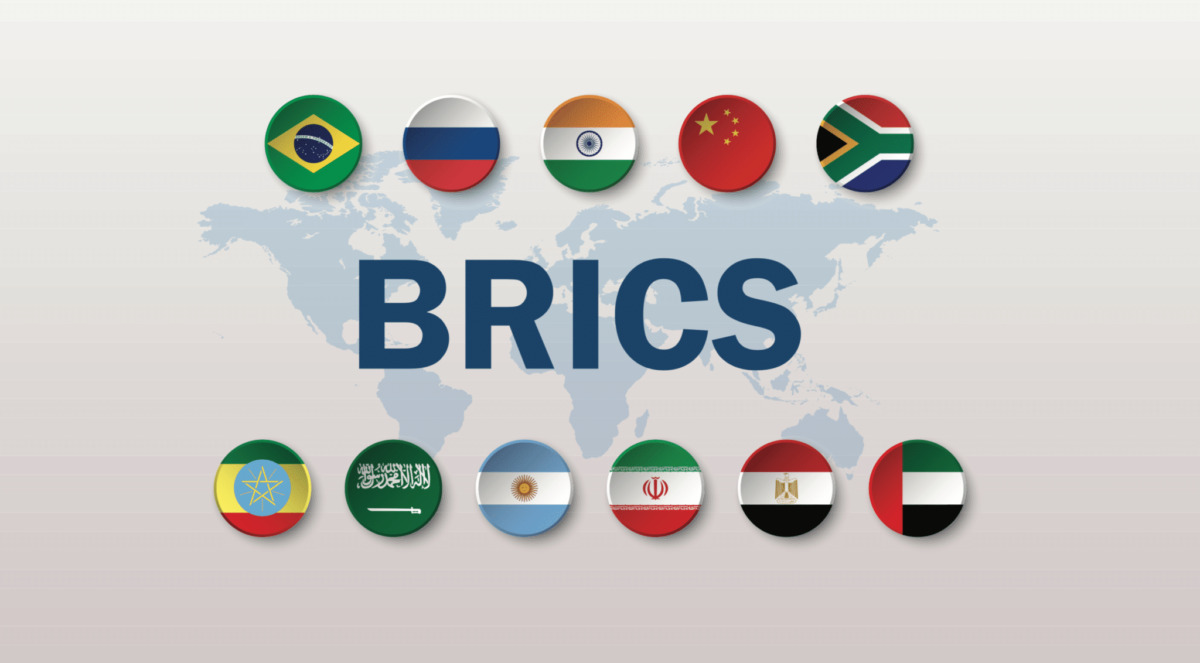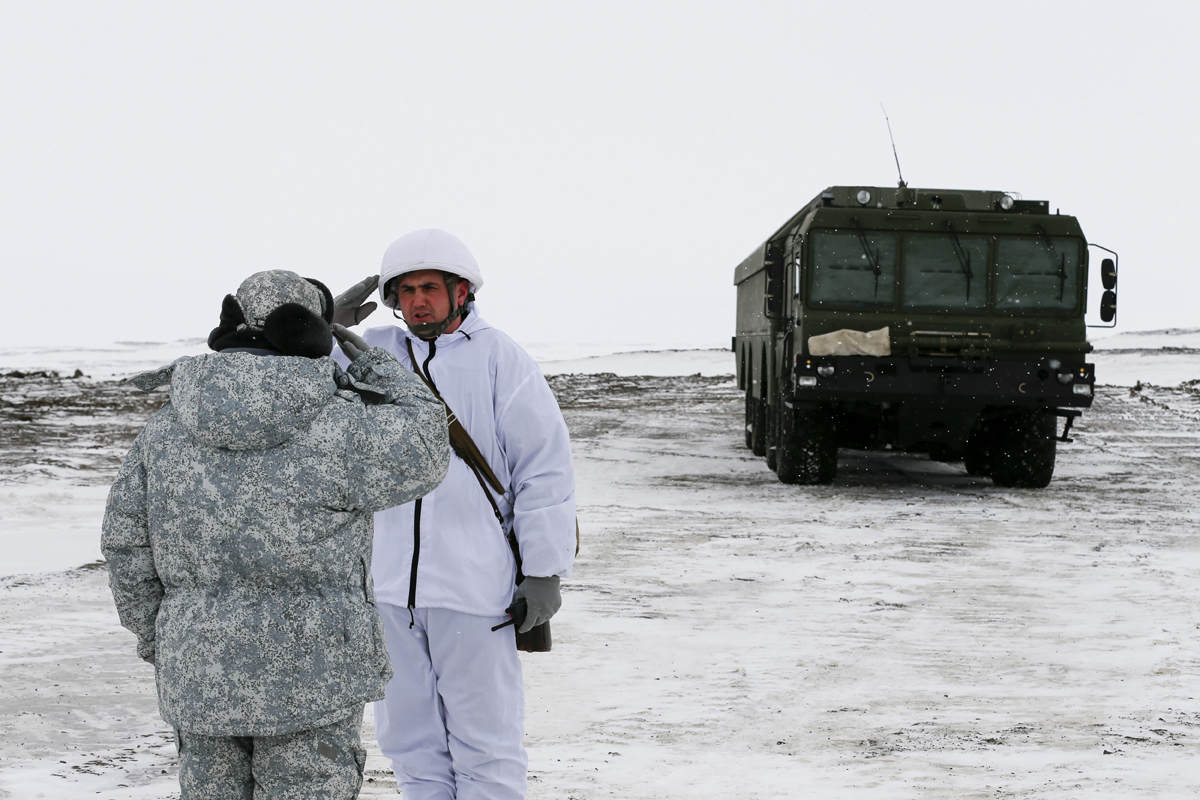Win the war and not lose the peace: Why was Russia asked to negotiate with Zelensky?
A day later, there was information that the Ukrainian side, after hesitation, refused to negotiate.
INSTITUTE FOR INTERNATIONAL POLITICAL AND ECONOMIC STRATEGIES
Suddenness of the topic of negotiations
Just a day after the start of the military operation to coerce Nazi Ukraine to peace, representatives of the Russian Foreign Ministry and Press Secretary of the Russian President Dmitry Peskov suddenly started talking about negotiations with Ukrainian President Vladimir Zelensky.
The agenda was uncoordinated, but it was the fact of the negotiations that was important, not their agenda, since Putin ordered the offensive to be stopped on the second day, which the enemy took advantage of and pulled up reserves to Kharkov and some other cities. Information planting (this was the nature of the statements) was made against the background of Vladimir Putin’s harsh rhetoric, which excluded any negotiations with Zelensky.
The Russian expert community became alarmed and seriously began to fear the failure of the operation’s plans. A whole campaign has emerged to prevent negotiations at the current stage until the military objectives of the operation in Ukraine are fully achieved. Even from Ukraine, requests began to arrive not to make concessions to the Nazis.
A day later, there was information that the Ukrainian side, after hesitation, refused to negotiate.
The messages coincided not only with actions against the Russian military operation, in which many luminaries of show business self-exposed themselves, but also with information that this is supported at the very top. The Russian elite is always under suspicion, and then there is such a visible information guide.
Negotiations and military action are two incompatible things
A well-known expert and former head of one of Israel’s intelligence agencies, Yakov Kedmi, once said the following about the negotiations:
“Negotiations are conducted when the balance of forces is clear and as a result of this (being established and clarified) balance of forces. Negotiations never take the place of a struggle to establish a balance of power, and they are never an element that adds strength.” This is an accurate statement from a professional.
If you apply it to the situation with the Russian military operation in Ukraine, it becomes obvious: the military operation is far from over and not everything is clear yet. But this is not a balance of power between Russia and Ukraine. This is the balance of power between Russia and the West. After all, the Russian military operation serves precisely these purposes, to change and record the change in forces as a result of the operation in Ukraine. We are not fighting with Ukraine in Ukraine, but with NATO.
And then, if everything is still not obvious, why do we need Zelensky and Putin to negotiate?
Russia pulled out of the Minsk process at all costs precisely because it became a screen for NATO’s advance to Russia’s borders. Not a single goal has been achieved yet, and everything is in an intermediate state. Why talk now about negotiations that can sow misunderstandings in the rear and at the front? If we can negotiate, we can do it without stopping the fighting.
Who initiated the question
Mediation in the talks between Putin and Zelensky was offered by Macron and Erdogan. The topic has been postponed. The situation was clarified by Nikolay Vavilov, a Sinologist and orientalist who knows the specifics of Chinese politics quite deeply.
He said on his Telegram channel (and this was confirmed by other channels known for their knowledge and access to insider information) that there was a phone call from Xi Jinping to Vladimir Putin. It was a very sensitive and emphatically respectful conversation in which Xi discussed with Putin the global situation in light of the Ukraine crisis. And this situation is as follows.
In China, as is known, there is a sharp political struggle going on between Xi Jinping’s group, consisting of people from military circles and oriented towards anti-globalism, sovereignty and anti-Americanism, with a group formed from former leaders of the Chinese Komsomol who hold leading positions in the party and economic assets of China. These are pro-American circles close to the US Democratic Party.
If the Komsomol candidate wins the election of the General Secretary of the CCP Central Committee at the congress in November this year, Russia will receive a huge state on its eastern borders where pro-American forces will be in power, and this will be for a long time.
At the same time, Russia may find itself in a situation of war not on two, but even on three fronts: in the East – a pro-American, that is, hostile China, in the South – NATO member Turkey, in the West – NATO.
Main ally
In other words, for the first time in 400 years, Russia may find itself in such a concentrated ring of threats. We will have to make concessions to the West, and this means falling under its protectorate and losing the chances of remaining within its current borders.
Similarly, in the 60s, when Mao Zedong made China an anti-Soviet state, moving closer to the United States, the USSR decided to go for detente and rapprochement with the West (negotiations with the Club of Rome, Helsinki Act) How it ended is known – perestroika and the collapse of the USSR.
It is now clear how important Xi Jinping’s victory in the upcoming election is for Russia. But in China, the energy crisis provoked by the Komsomol members is now unfolding, and it is superimposed on the financial crisis – inflation and the threat to China’s financial institutions. This is provoking a second Tiananmen, which Xi Jinping cannot allow. And Putin can’t.
Realising this, Biden demanded that Xi Jinping “take a stand on the Ukrainian issue”, that is, persuade Putin to “slow down” in Ukraine, threatening that if Xi Jinping refuses, US pressure on China will multiply.
And the Chinese elites, not only the Komsomol members, but also those in Shanghai and Shandong, who are still panicking that the personal relationship between Xi and Biden is worse than that between China and the United States, may not support Xi in November. The consequences of such a decision for Russia are catastrophic. It is no coincidence that after Biden’s conversation with the Chinese leader, the Americans said that China would not support Russia in its actions in Ukraine.
The Belt and Road Factor
There is another argument in favour of China’s request concerning Ukraine. Russia occupies the position of the main transport corridor between Asia and Europe in Xi Jinping’s “Belt and Road” project. Russia’s separation from Europe, which occurs as a result of the military actions provoked by the United States and Britain in Ukraine, makes the Chinese project a dead end: it does not lead to Europe, but rests against a wall.
This is yet another blow to China in general and to Xi Jinping in particular. Chinese Komsomol members are profiting from the US-controlled maritime trade, and they are sabotaging the Belt and Road as best they can. They don’t need sovereign land highways. Accordingly, Russia also loses its geopolitical chances in this case.
Most likely, all this was understood by both Putin and Xi during their telephone conversation. China officially stated earlier that it does not need what is currently happening in Ukraine. Russia doesn’t need this either. Therefore, Xi asked Putin to somehow find a way to connect the goals of the military operation with negotiations with Zelensky. For the sake of a common future and for the sake of common strategic goals.
Main allies
A friendly anti-American China is important to Russia, just as a friendly anti-American Russia is important to China. This allows China to have a calm rear in resolving the Taiwan issue and generally expanding to the south. And Russia should have as few troops as possible on the border with China that are needed in the West.
And this has already been done: for the first time, China has left two of the three military districts on the Russian-Chinese border, and the third one has been moved to the centre of China. Clearly in order to protect against pro-American colour revolutions, and not from Russia. Moreover, China lifted restrictions on the supply of Russian grain to the Chinese market in order to support Russia in a difficult moment.
China is ready to provide Russia with its own financial infrastructure in the event of Russia’s disconnection from SWIFT. And no form of sanctions pressure from the United States will force Beijing to abandon this, which for Russia nullifies the effect of US sanctions.
Against the background of the decision of Western automakers to stop supplying their new cars to Russia (which means that the car service of these brands will also stand up), the Korean and especially Chinese auto industry is getting an unprecedented chance in the Russian market. China will help Russia cope with the problem of integrated circuits, and although China does not have the latest types of them yet, there will still not be a complete shortage. The Hong Kong exchange remains available for operations of Russian campaigns.
The Britannia Factor
From this perspective, it is clear how important it is for Russia to support Xi Jinping now. And here another interesting detail becomes clear: the acute internal conflict between the United States and Great Britain. Biden is pushing Putin with all his might to negotiate with Zelensky – it is clear that in order to negotiate as many concessions as possible to preserve the position of American agents in Ukraine.
In other words, Biden needs these negotiations so badly now that he is even going to deepen the conflict with China, just to use all the resources to stop the Russian army. The US has no time! It has reached an unprecedented level: the United States has declared that it is no longer against the neutral status of Ukraine.
However, it is not difficult to guess that the United States, through Zelensky, will agree to the neutral status of Ukraine only in exchange for refusing to federalise it. This in fact means maintaining their dominance over this country. For Russia, this is unacceptable, as it will make all the costs of the decision on denazification of Ukraine in vain. This is where the edge of conflict will lie, including in negotiations, if they are to take place.
At the same time, it became known that Boris Johnson is categorically opposed to Zelensky’s negotiations with Vladimir Putin. It was Johnson who dissuaded Zelensky from negotiations, insisting that this would be the end of Ukraine, and that it was necessary to continue to stand to the death and put Russia in a pariah position. Even at the cost of the collapse of the current Ukraine – on the principle of “so if I can’t have you, nobody can have you”, and above all your closest ally, the United States.
That is, Britain, cementing its current balance of power, torpedoed Zelensky’s negotiations with Putin. On the first day of the Russian military special operation, Zelensky repeatedly expressed his readiness for urgent negotiations with Putin on the agenda of neutrality and guarantees for Ukraine. But it was under pressure from Britain that he decided not to go to them. They were beneficial to the United States and Ukraine, but completely unprofitable to Britain.
What is London trying to achieve?
The breakdown of negotiations gives Britain a great chance. The fact is that Russia will have a serious problem in the post-war scenario for Ukraine. Adapting Ukraine slowly, following the example of how China has adapted pro-British and anti-Chinese Hong Kong for decades, will not work – there is no such time. It is possible to demolish the current Ukrainian elites with the army, but where can we get a replacement for them?
Even the second and third personnel echelons in Ukraine are mostly corrupt and unskilled, but they are also Russophobic and pro-Western. Other staff are not physically present there. 30 years of American-Banderist breeding have done their job. Russian “sitters” are not suitable here, so most likely you will have to recruit from old cadres and strictly control them until the new ones grow up. As in Germany after Hitler – denazification is the same everywhere and is equal to the life of one generation.
If Ukraine remains as it is now, centralised, over time, this will not prevent the West from taking revenge there and again through the Maidan to reset all current decisions. Such a scenario will preserve the positions of the United States and Germany, and Britain will remain without a “controlling stake”. The chaoticisation of Ukraine is now more beneficial to Fraternisation, because in the new conditions its agents are strengthening. It is precisely explains the particular aggressiveness of the British establishment.
Russia’s goals and risks
For Russia, however, it is now important to ensure the federal or confederate status of Ukraine (while preserving the independence of the DPR and LPR). It is extremely important that the future political system of Ukraine and its power bloc, its foreign and domestic policy should be oriented towards integration with Russia. Strategic control over Odessa, Ochakov and Izmail is particularly important. Not to mention Kherson (North Crimean Canal).
If to guarantee Zelensky protection from the Nazis now, then theoretically it’s possible to try to solve a number of necessary issues with his hands – in fact, he is still the president of Ukraine. Doing this with another president will be more difficult, it will be later, and he may not be legitimate enough. But Zelensky is so tightly guarded by the Nazis, controlled by Mi6, that this is no longer a guard, but a convoy.
Whether he will be allowed to negotiate with Vladimir Putin is the question. Poroshenko hysterically demanded not to let Zelensky alone to negotiate with Putin, as Putin will simply bewitch him, and Zelensky will not notice how he will sign everything that Putin wants. Apparently, Poroshenko relied on his experience of the Minsk negotiations.
It is clear that even if there are similar decisions of Zelensky, the West will not accept them, and it will not accept such decisions of any other Ukrainian government if it is delivered not by the West, but by Russia. This is not about the NATO bloc’s recognition of new realities in Ukraine and in the world, but about the possibility for Russia to protect and preserve these realities. However, the new balance of power arises as a result of the military, not the negotiation process.
In the light of these considerations, negotiations with Zelensky, which are essentially an ultimatum about the surrender of Ukraine and putting it under Russian control, are acceptable for Russia. This is where Zelensky’s conflict with Britain and the United States arises. Zelensky needs not only guarantees of life and power, but also the safety of capital in the West.
This issue is not within Putin’s competence, and the Anglo-Saxons have disagreements on this issue. And Vladimir Putin can squeeze everything possible out of negotiations with Zelensky. Of course, if you don’t stop fighting, it will be easier to do this than if you put the war on pause. The enemy will immediately begin to restore strength, and a second Khasavyurt can undermine Putin’s Donbass consensus.
Elite connections and their nationalisation
The Nazis in Ukraine can be defeated, but the oligarchy will not be completely eradicated there. Even if to try to undermine its economic base and turn large companies in Ukraine into state corporations, following the example of Russia, it’s possible to limit their influence somewhat, but not completely eliminate it. The fact is that Ukrainian oligarchs have close ties to big business in Russia. This means that they also have patrons in the corridors of Russian power.
This may also explain the eight-year pause between Crimea and the denazification of Ukraine. Russian groups are influential because they control the macroeconomic parameters of key Russian industries.
Big businesses in Russia and Ukraine are equally pro-Western, as they depend on financial platforms dominated by the US dollar. This means that a segment of the pro-American establishment in Russia and Ukraine will continue to exist, and we are not talking about eliminating it, but about limiting it (nationalisation of elites). And this is also the way of negotiations and deals, if not during military operations, then after them for sure.
Negotiation process
Taking into account these and many other considerations that we are not aware of, Putin did not reject the idea of negotiations now (in Gomel). But this is not a negotiation, but rather a gathering of information. This is cutting corners and saving resources. Formally, Xi Jinping also fulfilled Biden’s condition. The fact that Zelensky refused, Britain is to blame, but Biden is already dealing with it himself.
The main thing is to win the war and not lose the peace afterwards. Americans are masters of such winnings. But Vladimir Putin has never lost a single negotiation so far, and he has had to conduct them from a much weaker position. Today, Russia has stronger bargaining chips in its hands.
Putin understands that this is not about negotiations over Ukraine, but about preparing for negotiations on the new Yalta. Their time has not yet come. And if Russia preserves and multiplies the resource, it will respond there. From this point of view, the negotiations on Ukraine are not the outcome, but the beginning of a big game. The tension is growing, but there is no reason to doubt Vladimir Putin’s ability to bring the fight to victory.
Source: https://russtrat.ru/en/analytics_/1-march-2022-0050-9072





Déjanos tu comentario